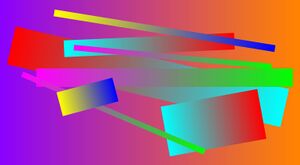The Hacking of Reality
| The Hacking of Reality | |
|---|---|
| Name | The Hacking of Reality |
| Location | De Bonte Zwaan |
| Date | 2018/07/30 |
| Time | 10:00-13:00 |
| PeopleOrganisations | Jaroslav Toussaint, Vera van de Seyp |
| Type | HDSA2018 |
| Web | Yes |
| No | |
We can not talk about fake news without at least implicitly defining what is real: the one does not exist without the other. To approach the question of what is real and fake or true and false, methods of reasoning — such as dialectics — can be helpful. Invented in antiquity as a way of making productive arguments, dialectics was used in modern times as a description of reality as a system of intertwined antagonisms in a constant struggle for resolve. This method of thinking laid the foundation for one of the most powerful ideologies of the 20th century: socialism, its view on history and its analysis of capitalism. However, the dialectical method — mostly in twisted forms — had also been applied to legitimize the horrors of fascism. Explaining reality as strong contradictions needing resolve recently regained popularity amongst today's so-called “alt-right” neo-fascist movements.
After a short introduction (max. 30 minutes) to the theory of dialectics and how to identify dialectical contradictions, we will discuss (app. 45 minutes) how this way of reasoning could be useful to our understanding of real and fake in our own environment.
In an exercise (app. 2 hours) we will work in small groups on chatbots with dialectical reasoning as a method to reveal the absurdities of contradictions between real and fake we come across in our daily life.
